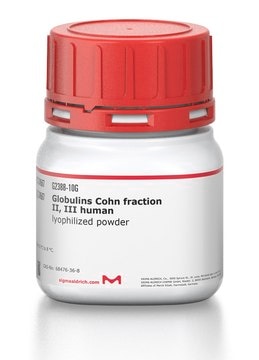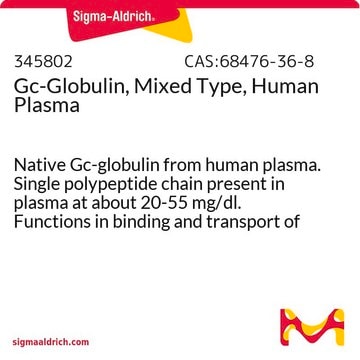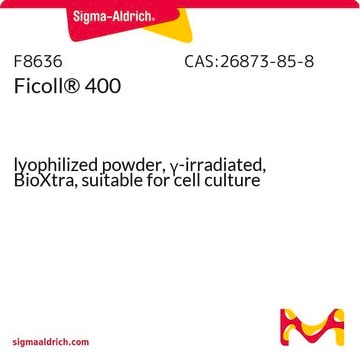G5640
Globulins Cohn fraction II, III from goat
Synonym(s):
Vitamin D binding protein
Sign Into View Organizational & Contract Pricing
All Photos(1)
About This Item
Recommended Products
biological source
goat
Quality Level
Assay
73-90% protein basis (biuret)
form
lyophilized powder
composition
Protein, 73-90% biuret
solubility
H2O: soluble 25 mg/mL
storage temp.
2-8°C
Looking for similar products? Visit Product Comparison Guide
General description
Vitamin D binding protein (DBP) is a polymorphic protein that specifically binds to vitamin D and its metabolites. This protein belongs to the albuminoid family and is highly conserved among vertebrates. The gene encoding DBP is mapped to human chromosome 4q11-q13. It is predominantly produced in the liver and is also expressed in the kidney, endocrine pancreatic cells, fat cells, and testis.
Application
Globulins were used in Biotin/avidin formulations.
Biochem/physiol Actions
Vitamin D binding protein (DBP) specifically binds and transports vitamin D and its metabolites with high affinity. It promotes fibrillar actin clearance by binding to actin monomers. DBP also binds to unsaturated fatty acids, megalin-cubilin receptor complex, the membrane of leukocytes, and the activation of the complement C5 system. The levels of DBP indicate the free concentration of all vitamin D metabolites. Decreased levels of serum DBP are observed in liver diseases, nephrotic syndrome, malnutrition, severe acute trauma, or disease.
Other Notes
Primarily γ-globulins
Physical form
Lyophilized powder containing NaCl
Storage Class Code
11 - Combustible Solids
WGK
WGK 3
Flash Point(F)
Not applicable
Flash Point(C)
Not applicable
Choose from one of the most recent versions:
Certificates of Analysis (COA)
Lot/Batch Number
Don't see the Right Version?
If you require a particular version, you can look up a specific certificate by the Lot or Batch number.
Already Own This Product?
Find documentation for the products that you have recently purchased in the Document Library.
Our team of scientists has experience in all areas of research including Life Science, Material Science, Chemical Synthesis, Chromatography, Analytical and many others.
Contact Technical Service








